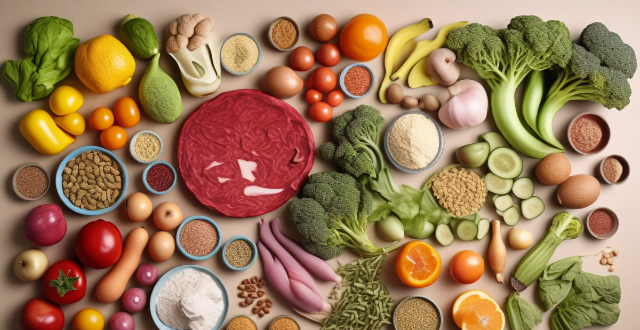A healthy diet is crucial for women's reproductive health, affecting fertility, pregnancy, and menstrual health. Essential nutrients like folic acid and iron support conception and hormone regulation. Calcium, vitamin D, and magnesium can reduce PMS symptoms, while iron-rich and antioxidant-rich foods improve period health. During pregnancy, nutrients like folic acid and iodine are crucial for fetal development, and fiber and hydration maintain maternal health. A balanced diet can also prevent gynecological issues like fibroids and ovarian cysts. Additionally, weight management and mental health through a healthy diet promote overall well-being. Consulting healthcare professionals for personalized dietary advice is recommended.

How a Healthy Diet Improves Women's Reproductive Health
A healthy diet is crucial for maintaining overall health and well-being, including reproductive health. For women, nutrition plays a significant role in fertility, pregnancy, and menstrual health. Here's how a balanced diet can positively impact various aspects of women's reproductive health:
Boosting Fertility
_Increased chances of conception_
- Folic Acid: Essential for preconception care, as it can help prevent neural tube defects in developing babies.
- Iron: Important for preventing anemia, which can affect fertility.
_Regulating Hormones_
- Protein: Helps stabilize blood sugar levels, which can influence hormone regulation.
- Omega-3 Fatty Acids: May help regulate menstrual cycles and support hormonal balance.
Managing Menstrual Cycles
_Reducing PMS Symptoms_
- Calcium and Vitamin D: Can help reduce symptoms such as cramps and mood swings.
- Magnesium: Helps alleviate cramps and bloating.
_Improving Period Health_
- Iron-rich Foods: Replenish iron lost during menstruation, preventing fatigue and other related issues.
- Antioxidant-rich Foods: Like fruits and vegetables, can help combat inflammation associated with menstruation.
Supporting Pregnancy
_Nutrient Absorption for Fetal Development_
- Folic Acid: Continues to be essential for fetal development, especially during the first trimester.
- Iodine: Supports the normal growth and development of the fetus's brain and nervous system.
_Maintaining Maternal Health_
- Fiber: Helps manage constipation, a common issue during pregnancy.
- Hydration: Staying well-hydrated supports placental health and reduces the risk of pregnancy complications.
Preventing Gynecological Issues
_Reducing the Risk of Uterine Fibroids_
- Low-fat Diet: Associated with a reduced risk of fibroids.
- Vitamin D: May play a protective role against the development of fibroids.
_Combating Ovarian Cysts_
- Low-Glycemic Index Foods: Can help regulate insulin levels, which may be linked to ovarian cyst development.
- High-Antioxidant Foods: Help protect ovarian health by reducing oxidative stress.
Promoting Overall Well-being
_Weight Management_
- Balanced Macronutrients: Ensures energy balance, helping maintain a healthy weight, which is vital for reproductive health.
_Mental Health_
- Omega-3 Fatty Acids: Linked to improved mood and reduced risk of depression, which can impact reproductive health.
In conclusion, a healthy diet rich in essential vitamins, minerals, and macronutrients plays a foundational role in enhancing women's reproductive health across various stages of life. It's important to consult with healthcare professionals for personalized dietary advice tailored to individual needs and circumstances.